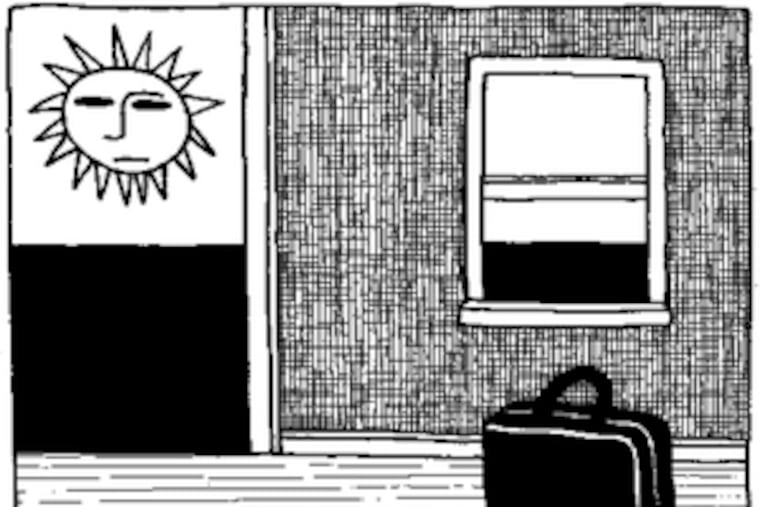August means slow city living
As the hordes flee the heat, the pace relaxes on the streets of Philadelphia.

By Myra Bellin
The dog days of summer have always tested my enthusiasm for city living. These are the weeks when the summer feels old and stale. The pale sidewalks reflect the harsh glare of the August sun, and the adjacent buildings intensify it. The air hangs stagnant, a semi-translucent veil that robs colors of their intensity - the green leaves seem dusty and the red petals look old.
The ancient Egyptians and Romans blamed Sirius, the "dog star," for the relentless heat of the summer, hence the term dog days. They thought that because Sirius rises and sets with the sun during the summer months, it added its own heat to the sun's rays, bringing, in addition to elevated temperatures, drought, madness, and plagues.
"Surviving the heat?" asked the young female checkout clerk at the supermarket last Sunday. Hair was just beginning to sprout from the scalp of her totally bald head, and I wondered if she had shaved it to keep cool. "I'm trying my best to handle it," I replied, "by just moving slowly. How about you?" She paused to think. "I take about 72 showers a day."
Showers are one way to cope, but a more popular strategy among city dwellers is to just leave. Anyone with two legs, four wheels, and accumulated vacation days escapes for as much of August as possible. Folks tether their bikes to the back of the car, stuff the trunk with canvas duffels, cram the kids and the dog in the backseat, and head for the beach or the mountains or anywhere that doesn't have a dress code demanding clothes more formal than shorts and sandals.
In previous years, my husband, son, dog and I were among the Philadelphians fleeing over the Ben Franklin Bridge. When August arrived, we headed for the northern reaches of Vermont, where nights were chilly enough to build a fire in the cabin's pot-bellied stove and just a hint of fall tinged the air. And even though August still greeted us on the ride home two weeks later, often with its heat and haze intact, the dog days no longer seemed as oppressive.
But weddings and college tours altered our usual vacation schedule this year. So we are spending the dog days of August in Philadelphia. All of them.
"Do you remember when the courts would completely close in August?" my husband the lawyer asked as we strolled to the deli around the corner for breakfast. The air was so dense it felt like we had to carve our way through it. "It was just too hot to be in session. Everything stopped until after Labor Day."
In the 24/7 world of the 21st century, the only time things completely stop is during a power outage. But the combination of fewer people and higher temperatures means that life in August moves at a more leisurely pace, an unexpected perk of staying home. After resigning myself to the haze and humidity, I am learning that the upside of dog days in the city is the freedom to move at a lazier tempo.
Slowing down reduces the number of minor irritations that are part of daily life, the ones that unconsciously burst into road rage or ulcers. With so many people away, the streets are not jammed. Fewer cars mean less frustration - unless, paradoxically, you are on the Atlantic City Expressway on Friday afternoon, when the exodus reaches staggering, bumper-to-bumper proportions.
It is easier to find a parking space in Center City, and less aggravating to claim it - the driver who would normally honk and scream when I stop to parallel park on Walnut Street at 1 p.m. on a Wednesday in June can easily maneuver around me in the semi-deserted lanes of August.
It's simpler to find a table at one of Philly's many fine restaurants this month, too. No need to plan ahead for three weeks for a dinner out. Fewer patrons, less noise, more time to enjoy a good meal. Lines are shorter at the supermarket, the hardware store, and everywhere else, unless you decide to drive to the Shore for dinner, where you may have a long wait for a table.
Still, the heavy humid air of August momentarily stuns me when I leave an air-conditioned room and walk outside. One small step over the threshold and it feels like I've moved from the Arctic Circle to a dense tropical rain forest in seconds. But once I'm outside, my steps automatically turn languid. Nature seems to be orchestrating an annual slowdown.